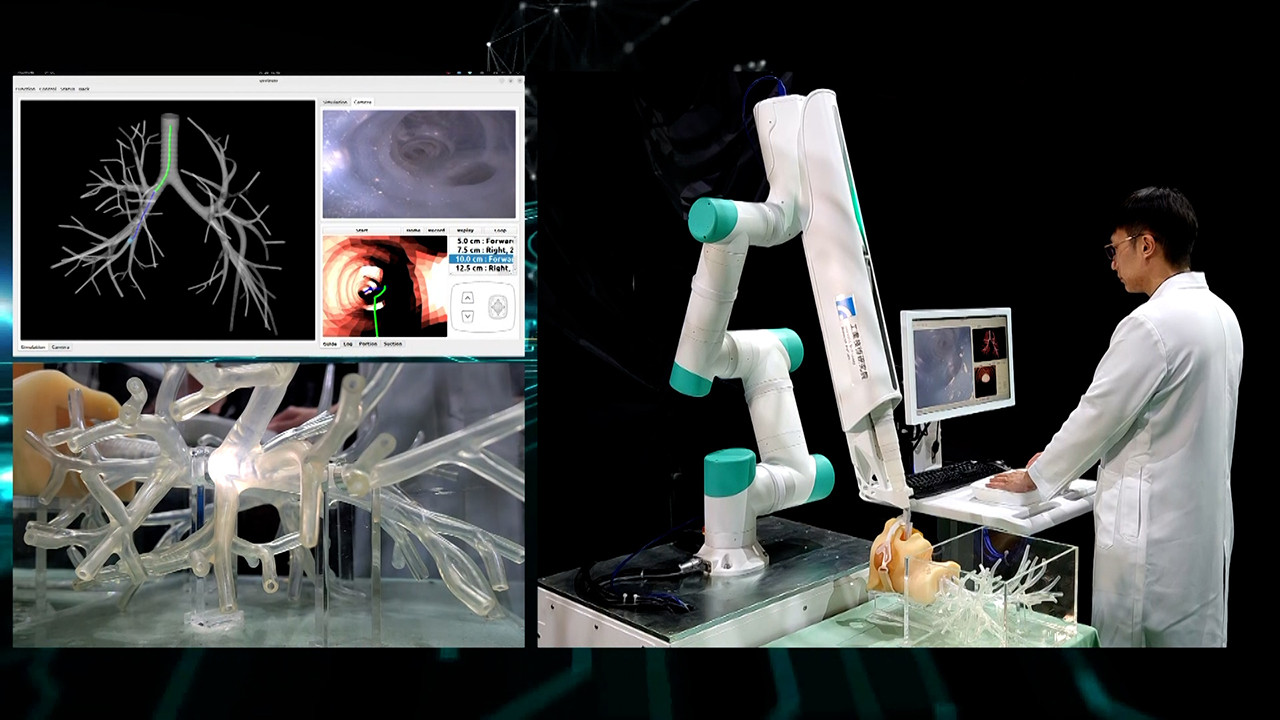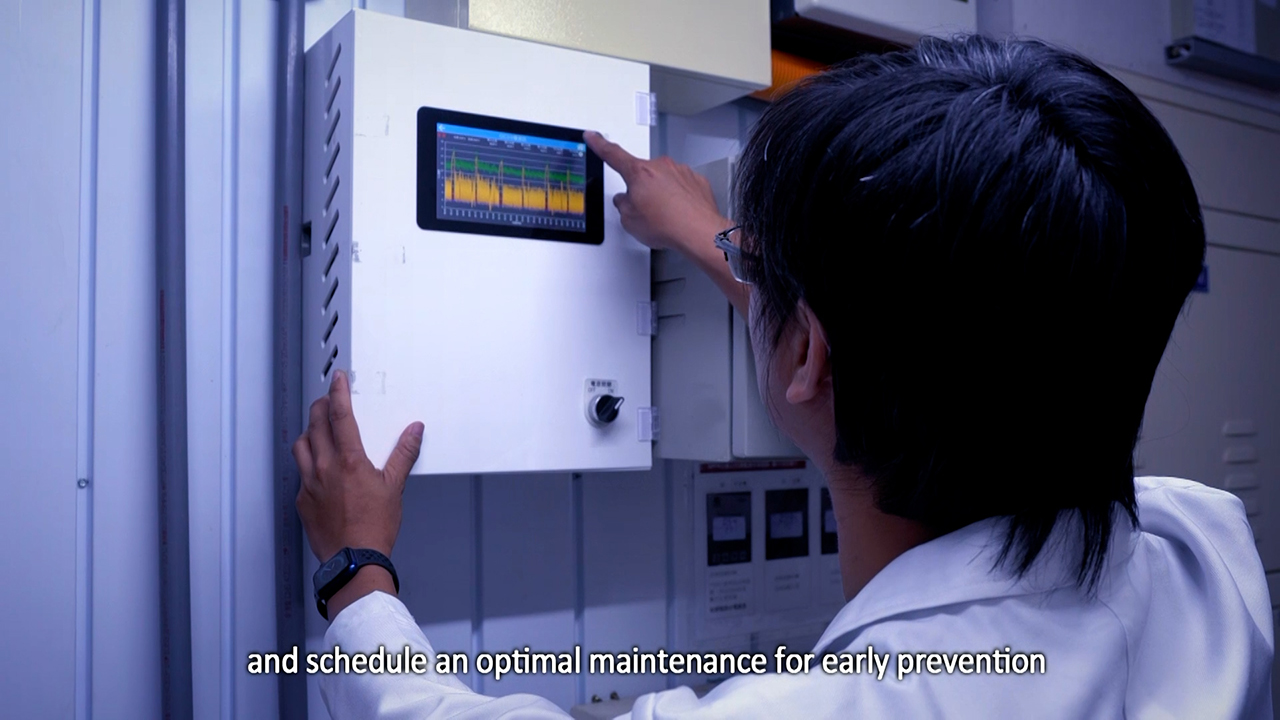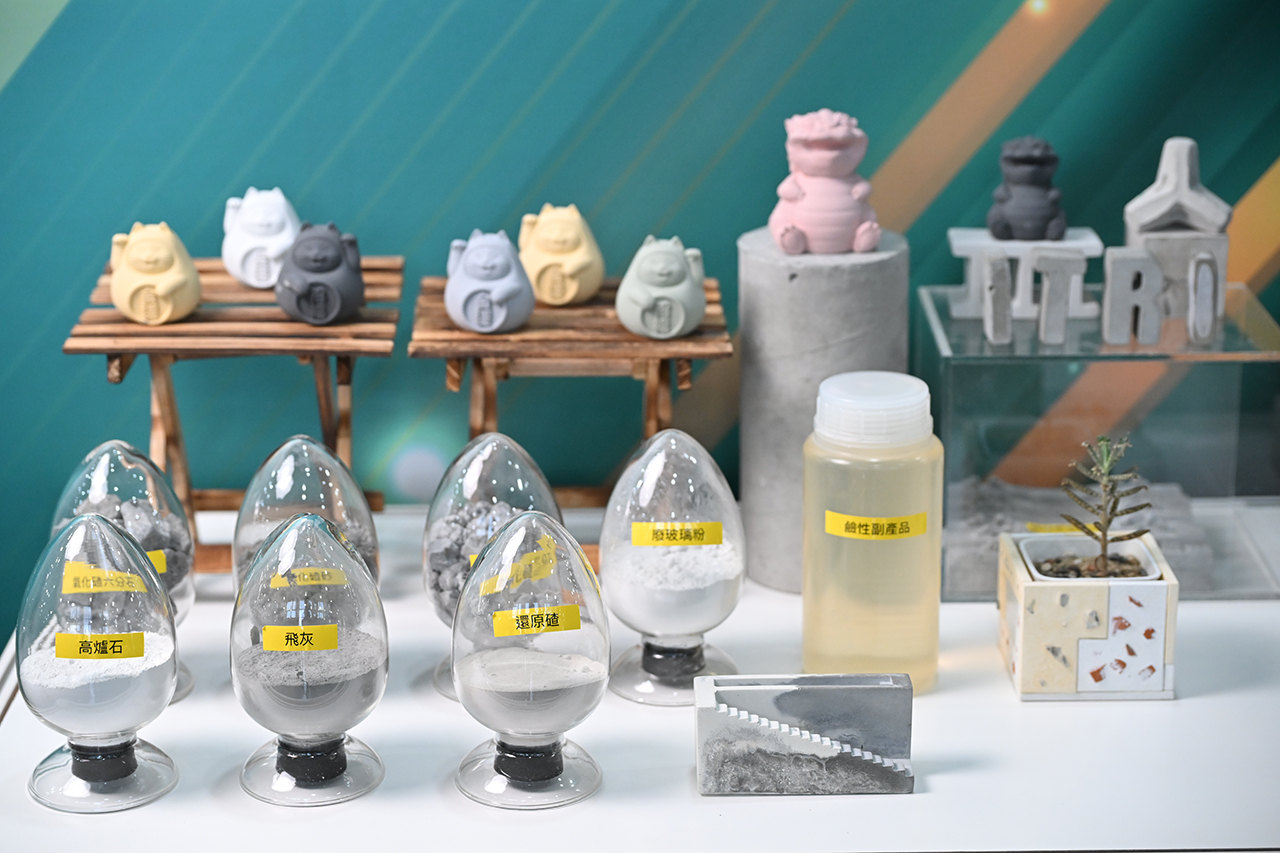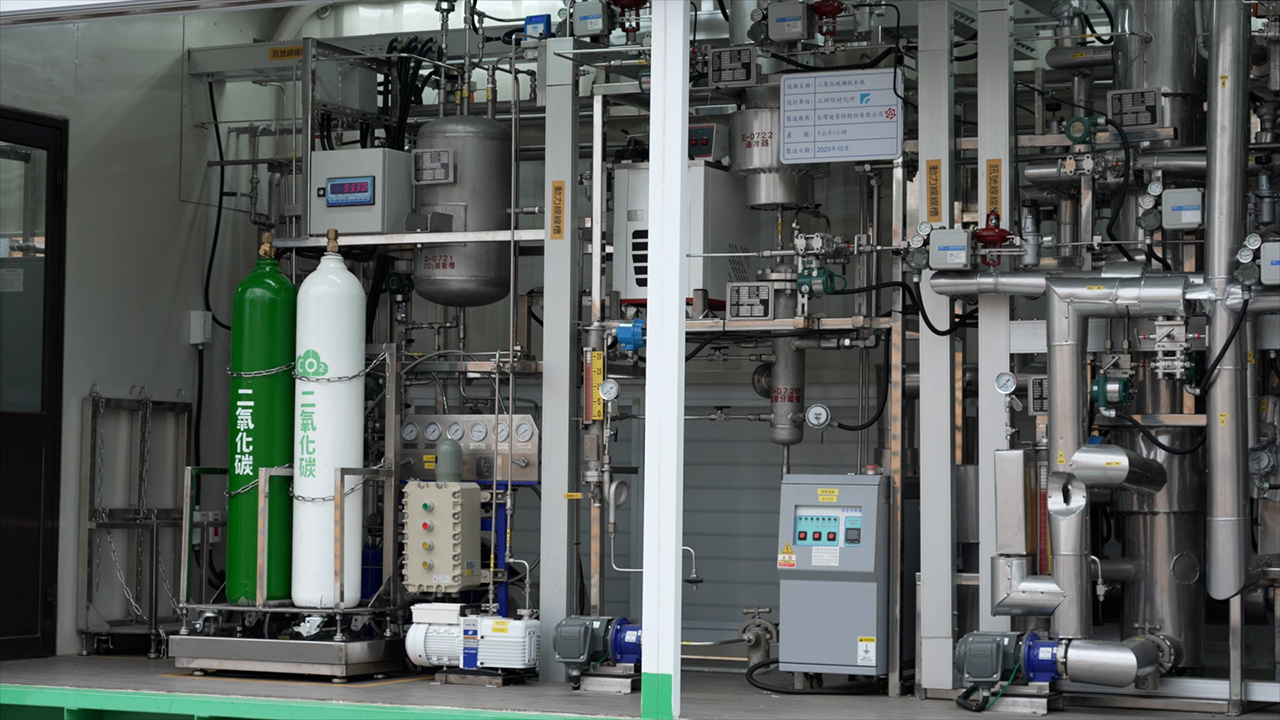Feature
Cutting-Edge Healthcare and Net-Zero Solutions
In pursuit of quality health and a sustainable environment, ITRI has been advancing developments in healthcare and net-zero technologies. These include the AI-driven Self-Navigating Miniature Serpentine Robotic System for Natural Orifice Transluminal Endoscopic Surgery (AiSNMSR), Agilely Adoptable Demand Responsive Energy Management System (AADREMS), AI Formulated Low Carbon Geopolymer Concrete (AI-LCGC), and CO2-Fixing Polycarbonate.
AI-driven Self-Navigating Miniature Serpentine Robotic System for Natural Orifice Transluminal Endoscopic Surgery (AiSNMSR)
AiSNMSR revolutionizes Natural Orifice Transluminal Endoscopic Surgery (NOTES) by addressing challenges such as limited space, small orifice diameters, and risks of bleeding and infection. The system integrates omnidirectional bending, real-time tactile feedback, self-navigation, and modular tool-swapping, enabling surgeons to perform precise and safe procedures. Equipped with a CMOS camera, AI-enabled real time image recognition, and flexible navigation, AiSNMSR improves surgical control and safety. Applicable in fields like gastroenterology, urology, and neurosurgery, it minimizes complications, shortens recovery times, and enhances patient outcomes. This innovation has been validated through collaboration with National Taiwan University Hospital.

AiSNMSR applied in a simulated surgical setting.
Agilely Adoptable Demand Responsive Energy Management System (AADREMS)
AADREMS provides an energy-saving solution for energy-intensive commercial sites such as wholesale stores and supermarkets, where energy management systems are not commonly implemented. AADREMS uniquely uses cold energy from refrigeration units as thermal storage for demand response and regulates temperature to accommodate both food safety and load shedding needs. This approach manages interactions with all IoT components to maximize energy savings and provides maintenance predictions and demand response services. As a plug-and-play system, AADREMS can be installed in a store in three days without disrupting business operations. This system reveals a potentially untapped source for reducing energy consumption in the retail sector.

AADREMS allows for remote monitoring of all equipment and real-time alerts of malfunctions.
AI Formulated Low Carbon Geopolymer Concrete (AI-LCGC)
AI-LCGC technology is a scalable, low-carbon concrete replacement that reduces CO2 emissions by 70-90% compared to traditional concrete. It uses 100% industrial waste, including fly ash and blast furnace slag, without clinker, while maintaining or improving concrete properties. The key innovation is an AI-driven formulation platform that tackles the complexity of scaling up carbon-reduction cement technologies. This platform predicts concrete quality from raw materials (forward prediction) or generates formulations based on desired properties (reverse prediction). AI-LCGC enables supplementary cementitious material (SCM) providers and concrete producers to create concrete with controllable, sustainable properties, offering a practical solution for large-scale implementation.

Raw materials and concrete products of AI-LCGC.
CO2-Fixing Polycarbonate
CO2-Fixing Polycarbonate (FCO2PC) technology produces high-performance polycarbonate by capturing CO2 from factory combustion flue gas, significantly reducing carbon emissions. This energy-efficient, non-petroleum-based process is closed-loop, zero waste, and nontoxic, using recycled chemicals with no harmful pollutants. FCO2PC’s breakthrough lies in its use of sophisticated catalysts that avoid toxic feedstock and recycle all solvents and wastewater. Developed with CHIMEI Corporation, the technology is undergoing field testing, expected to reduce emissions by 17%, or 178,500 metric tons annually. FCO2PC matches traditional polycarbonate in quality and is suitable for applications like safety helmets, phone cases, headlamp covers, eye protection, and more.

CO2-Fixing Polycarbonate technology captures and utilizes CO2 from flue gas and reduces energy consumption in the manufacturing process.